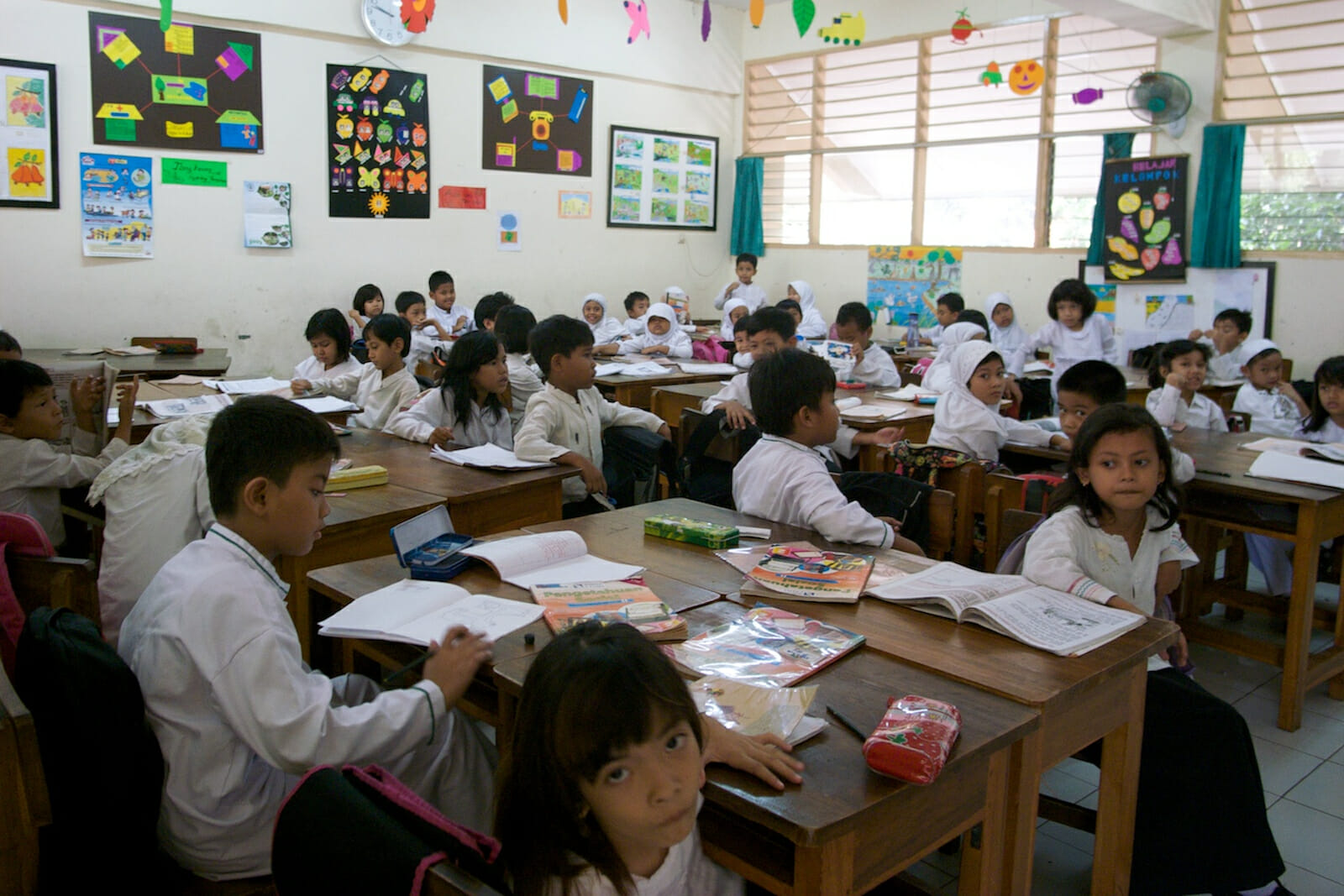
Education Reform in Indonesia Likely to Backfire
The decision by the Indonesian government to radically alter its current primary school curriculum by replacing science with classes focused on religion and courses that strengthen nationalism will have a generational impact that may prove to make the country less economically competitive and less attractive to foreign direct investment in the years ahead.
The drastic changes in primary school curriculums in Indonesia’s public school system, slated for implementation this summer, could lead to greater persecution of the nation’s Catholic, Buddhist, and Protestant religious minority groups. With religious violence on the rise and the declining effectiveness of the educational system in Indonesia, reform efforts to address these issues are a logical pursuit. However, the decision to remove science and social sciences classes will likely backfire and create a lost generation, which will lead to economic decline, social instability, and religious radicalization.
In November, Indonesia’s deputy minister of education, Musliar Kasim, explained that changes in the Indonesian educational system curriculum was an absolute necessity because, “Right now many students don’t have character, tolerance for others, empathy for others.”
The need for augmentation was in response to concerns that students were becoming overwhelmed with the workload, and that instances of student violence were increasing as a consequence. Government officials asserted that students needed to learn how to become better citizens and that it could only be achieved by instilling character and a greater sense of morality.
As a consequence, Indonesia’s Education Ministry crafted a proposal to change the underlying curriculum in the country’s education system. A draft was published in November and was revised in December. The first draft failed to provide significant substance and lacked details as to how the changes in the curriculum would achieve intended outcomes.
Specifically, the reform efforts that were suggested indicated that science and social science classes were to be merged and that more time would be spent on religious education and on classes that instill a greater sense of nationalist fervor. The linkage between removing and or minimizing science and improving student character remains unclear.
The move to improve Indonesia’s educational system is clear. In a report last year issued by Pearson and the Economist Intelligence Unit, Indonesia’s education system appears to be in dismal shape. In fact, the report entitled, “Index of Cognitive Skills and Educational Attainment,” which “provides a snapshot of the relative performance of countries based on their education outputs” placed Indonesia dead last in all index categories. Even so, the decision to remove science and to replace it with compulsory religious studies and replacement courses that encourage greater nationalism poses a serious risk that such changes could backfire.
Indonesia, a massive archipelago with a population of around 240 million people, has the largest Muslim population of any country in the world with roughly 88 percent of its population being Muslim. While Indonesia is not an Islamic state and does allow six other registered (or “official national”) religions to practice, instances of inter-religious violence are a regular occurrence. According to a December report by the human rights group, the Setara Institute, “religious strife [is] on the rise in Indonesia” and it points to the institute’s 2012 report that “recorded 371 acts of religious violence…up 25 percent from 299 last year.”
Religious violence and the ongoing effort to combat radical Islamic groups remains an internal security concern for Indonesia. However, there are indications that the current government leadership is taking a step back and allowing radical Islamic groups to flourish. Take for example the arrest of 11 individuals last October. These Muslim radicals were found with bombs and a list of targets that included the American embassy and offices of an American mining company in Jakarta, as well as the US consulate in Surabaya. The would-be terrorists were part of a small and legally permitted religious group called the Sunni Movement for Indonesian Society.
While Indonesian counter-terrorism efforts have been extremely successful in recent years, radical Islamic terrorists and religious conflict remain a significant destabilizing element that will pose a long-term challenge for the Indonesian government. Addressing Indonesia’s lackluster education system by increasing religious teachings, potentially exposing students to radical ideologies, and seeking to indoctrinate students with greater national pride, could logically have the exact opposite effects to the ones the Education Ministry desires.
Additionally, Indonesia’s economy has been strong recently, with 6 percent GDP growth reported last fall. By removing science from its education system, it will undoubtedly impact the ability of its citizens to compete in the future. A lack of scientific training and understanding will mean less research and development, resulting in fewer and less significant technological advances.
By so drastically adopting a reductionist curriculum, government leaders are laying the groundwork for a lost, unskilled, yet religiously and nationalistic zealous generation. This could have serious negative implications on economic growth prospects for the nation. Such a decline would surely cause social instability and fractioning along religious, cultural, and ethnic lines. Instances of inter-religious violence could subsequently swell. State-mandated religious instruction could also plant the seeds for greater Islamic radicalization and continued marginalization of religious minorities in the nation as well.
Education plays a crucial role in society and is the underlying tool that enables a nation to effectively compete on a global scale. It also helps to inform citizens of what to expect and demand of their government, especially in open democratic societies. Ultimately, the proposed deterioration of the curriculum’s integrity on such a massive scale is concerning as it may transform into a tool of oppression by the Indonesian government. Indonesia faces a complex problem on how to address the systemic weaknesses within its educational system. However, reform in the way of omitting science from the classrooms appears likely to have lasting and potentially very dangerous and very real negative implications.
